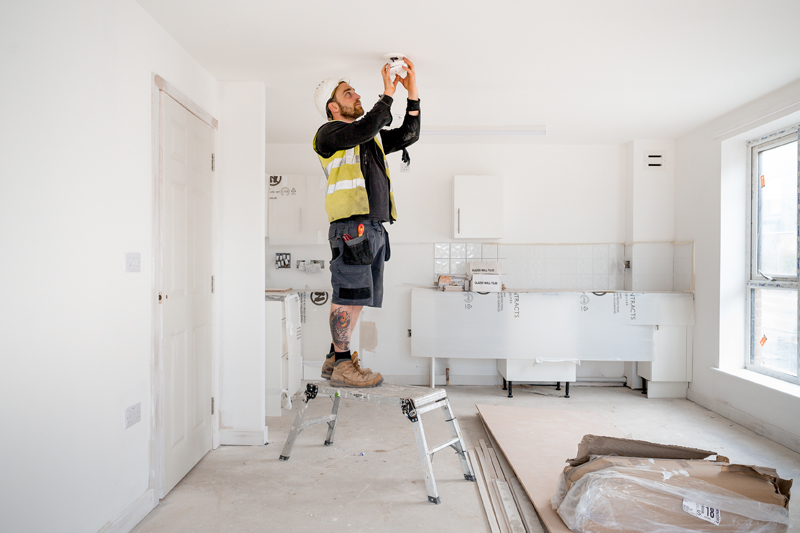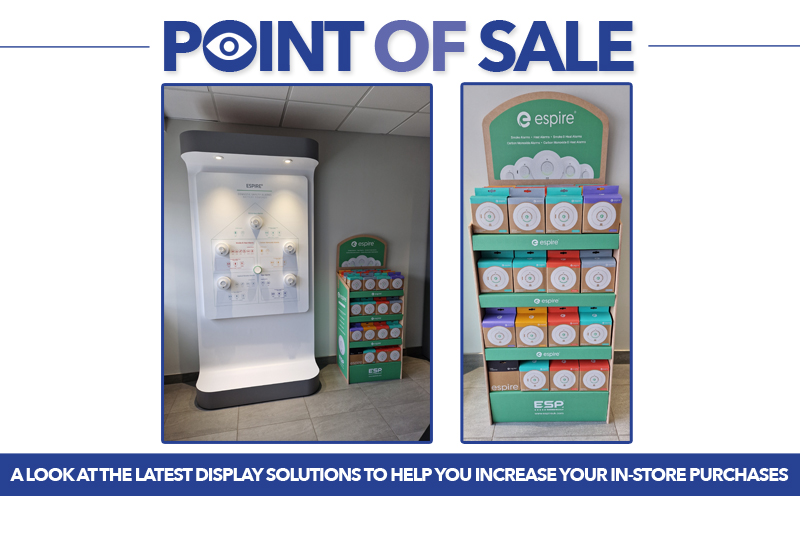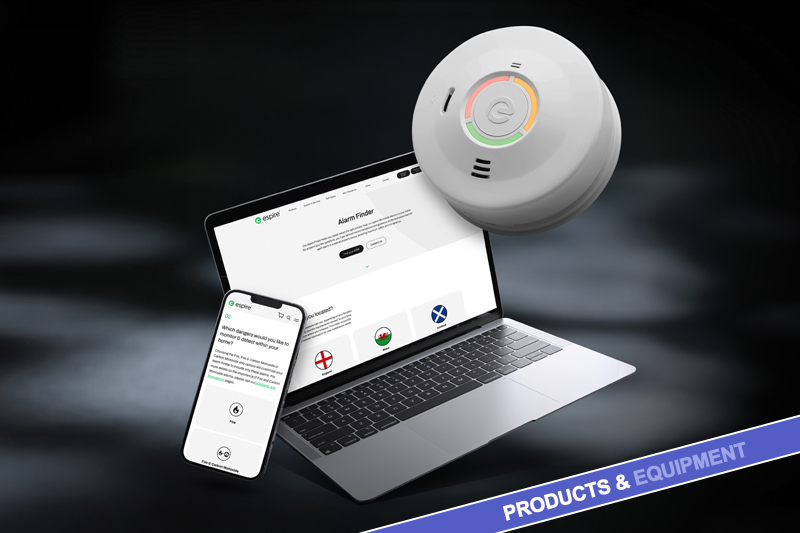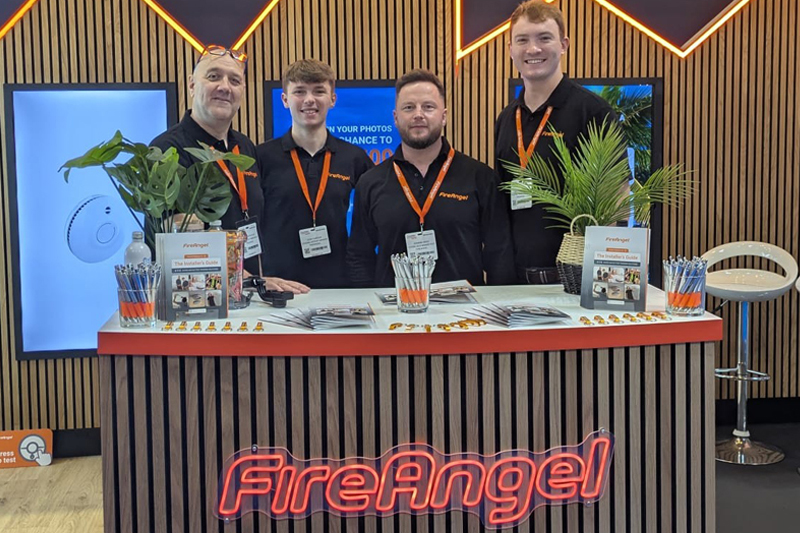When it comes to life safety solutions, electrical wholesalers play a crucial role in supporting the selection process with the right knowledge. Simon Jones, UK Marketing Manager at Kidde Safety Europe, outlines key considerations for recommending smoke and carbon monoxide (CO) alarms to customers.
Smoke alarms are essential for protecting building occupants, particularly in domestic properties. According to the Home Office, the fire service in England responded to nearly 140,000 fires in the year leading up to March 2024, resulting in 251 deaths and more than 6,000 non-fatal injuries. Unfortunately, in many of these incidents, smoke alarms were either not installed or not functioning. In fact, 24% of dwelling fires attended by the fire service had no smoke alarm, contributing to 34% of all dwelling fatalities.
Similarly, CO alarms are vital for detecting the invisible, odourless, and deadly gas that can emanate from fuel-burning sources such as boilers, cookers and wood-burning fires. Each year in the UK, around 40 people die and more than 4,000 are seriously ill due to carbon monoxide poisoning.
Choosing the right products
The reliability of alarms is crucial, and one of the most important factors is the power source to ensure proper performance. Statistics show that in 29% of domestic fires an alarm was present but failed to operate due to issues like missing or defective batteries.
For new properties, mains-powered alarms with battery back-up are required to minimise the risk of failure, as per Part B of the Building Regulations and Section 2 of the Scottish Building Standards. Since 2022, even existing properties in Scotland must have mains-powered alarms. BS5839-6, the code of practice for fire detection and alarm systems in domestic premises, recommends interconnected alarms, ensuring that when one activates, all alarms sound. Radio-frequency (RF) connectivity is a simple and effective way to interlink alarms. Additionally, alarms with a sealed-in battery that lasts the 10-year life of the alarm are recommended for added convenience and reliability.
Wholesalers should also be able to guide customers on the correct number and placement of alarms. While the exact requirements depend on the property size and layout, in England and Wales, smoke alarms are mandatory in all escape route circulation areas. BS5839 Part 6 recommends category LD2, which includes smoke alarms in all escape routes and high-risk areas like living rooms. A heat alarm must also be installed in kitchens. This is compulsory in Scotland and Northern Ireland.
While battery-powered smoke alarms are available for replacing existing units, wholesalers should highlight the benefits of upgrading to mains-powered, interlinked alarms, which offer greater safety and peace of mind.
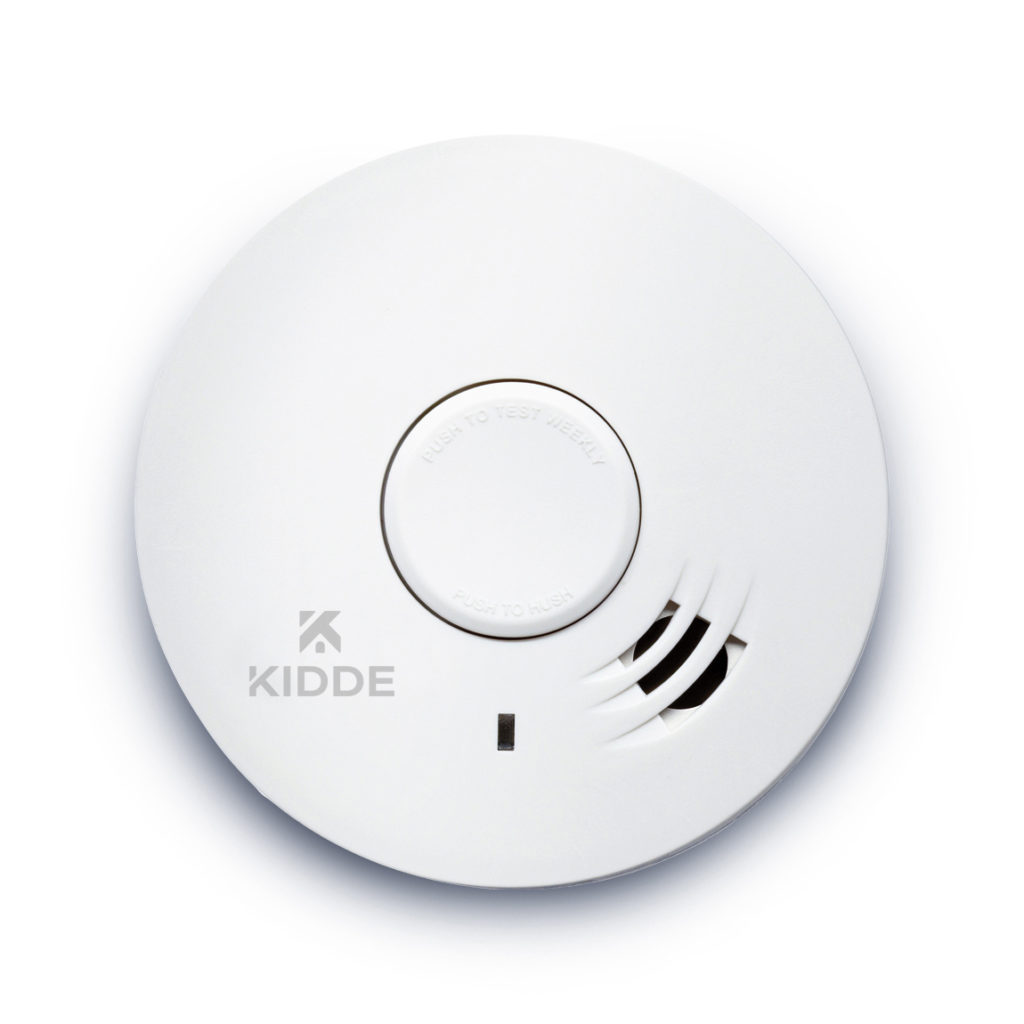
Special considerations for vulnerable occupants
In higher-risk environments, such as sheltered accommodation for the elderly or disabled, wireless heat and smoke alarms can be linked to output devices like telecare systems, strobes and sounders, providing an enhanced level of safety. These alarms can be connected through relay solutions for added protection.
Carbon monoxide alarms: Legal requirements
CO alarms are mandatory in all new homes in the UK with a fixed combustion appliance or flue, and required in existing homes where such an appliance is installed. In Scotland, CO alarms are compulsory in all homes, including existing properties, and in all rented homes in England and Wales.
Testing and product warranties
Wholesalers should recommend only the highest quality products that comply with relevant standards. Smoke alarms must meet EN14604, heat alarms should comply with BS5446-2, and CO alarms must meet EN50291-1. Ensure that products are tested and certified by an independent, accredited third party, and check that the manufacturer provides proper documentation. Long term manufacturer warranties also demonstrate product quality and offer reassurance to customers.
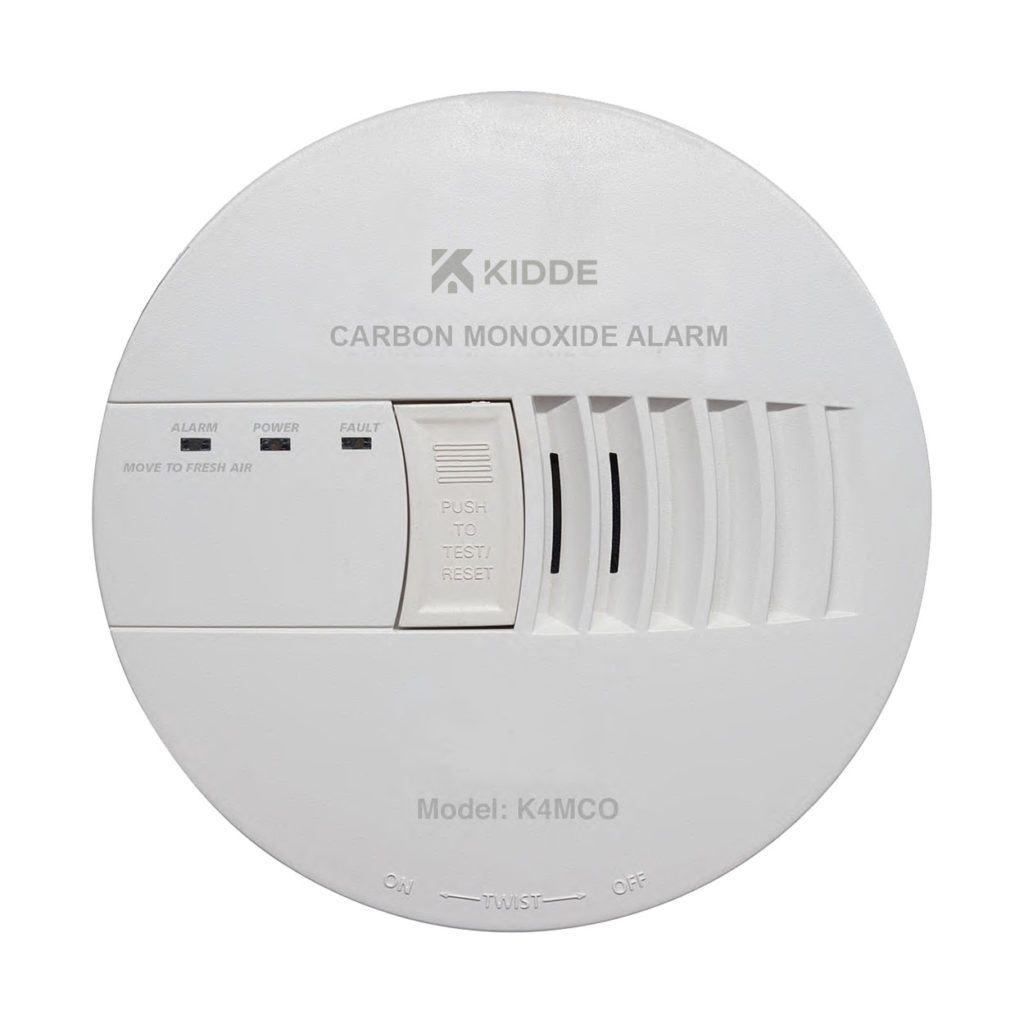
Technical support
Recommending products from manufacturers that provide strong technical support is essential, particularly for more complex solutions. This ensures that product-related queries are answered quickly and that customers receive guidance on compliant installations. Kidde, with over 100 years of heritage in fire safety, offers dedicated technical product support from a team of specialists.
By equipping themselves with the right information, wholesalers can offer valuable advice and service, helping to drive repeat business and ensure customers’ safety.
For further information, click here
Find more industry features here

